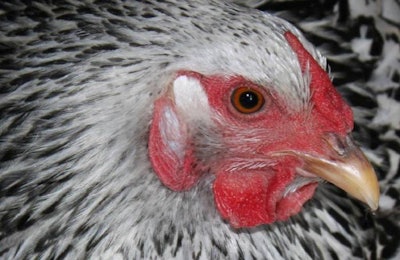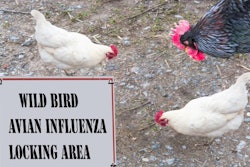
An H5N6 variant of the highly pathogenic avian influenza (HPAI) virus has been detected for the first time in poultry in Cambodia, and new cases have been confirmed in Mexico, Nigeria, and Taiwan.
Cambodia’s animal health agency has reported the detection of the H5N6 HPAI virus at a market in the province of Takeo — which borders Vietnam — one month ago. This is a new strain to the Southeast Asian country, and it was found as the result of a multinational program of surveillance of live bird markets. Poultry sampled at the market in the provincial capital, Krong Doun Keo, tested positive for the virus, according to the official agriculture ministry report to the World Organisation for Animal Health (OIE).
The live bird market surveillance program in Cambodia revealed the presence of a low-pathogenic avian influenza (LPAI) virus of the H7N4 subtype at three locations during February. No further cases have since been detected, and Cambodia’s agriculture ministry has declared the situation to have been “resolved” to the OIE.
Three new cases in Mexico
A further three outbreaks of HPAI linked to the H7N3 virus variant have occurred in Mexico, bringing the country’s total to four since the beginning of March this year. All the outbreaks were in backyard flocks. Two were in the state of Jalisco, affecting one group of 1,625 fighting cocks, and another of 612 poultry of unspecified type. The third outbreak involved 290 birds in a village in the state of Mexico.
Detection in Taiwan
The H5N2 HPAI virus was detected during the last week of March among two more batches of native chickens at a slaughterhouse in the Wanhua district of the Taiwanese capital, Taipei city. There were four cases among the total of 77 birds tested, according to the official report from the Council of Agriculture to the OIE.
Virus returns to NIgeria
After a two-month absence from Nigeria, the H5N1 HPAI virus was confirmed in early April in a flock of 1,500 cockerels and hens in Benin City in the southern state of Edo. Around 250 of the birds died, and the rest were destroyed, the federal agriculture ministry reported to the OIE in the latest week. The most recent HPAI cases in Nigeria were in the state of Bauchi in the center of the country in January of this year.
Bangladesh, Denmark report wild bird disease “resolved”
Following the detection of an H5 LPAI virus earlier this year in an isolated organic layer flock, Denmark’s agriculture department has declared the disease situation “resolved” to the OIE. No further cases have been observed in poultry since that time.
Also in Denmark, the H5N6 HPAI virus was detected in two birds of prey found dead in January. As the virus has not been found in wild birds since, the agriculture ministry has declared to the OIE that the disease event is closed.
A similar declaration has been made to the OIE by the animal health agency in Bangladesh. The Ministry of Fisheries and Livestock report no further detections of an H5 HPAI virus in wild birds since around 30 crows were found dead in Khulna division during December of 2018.















